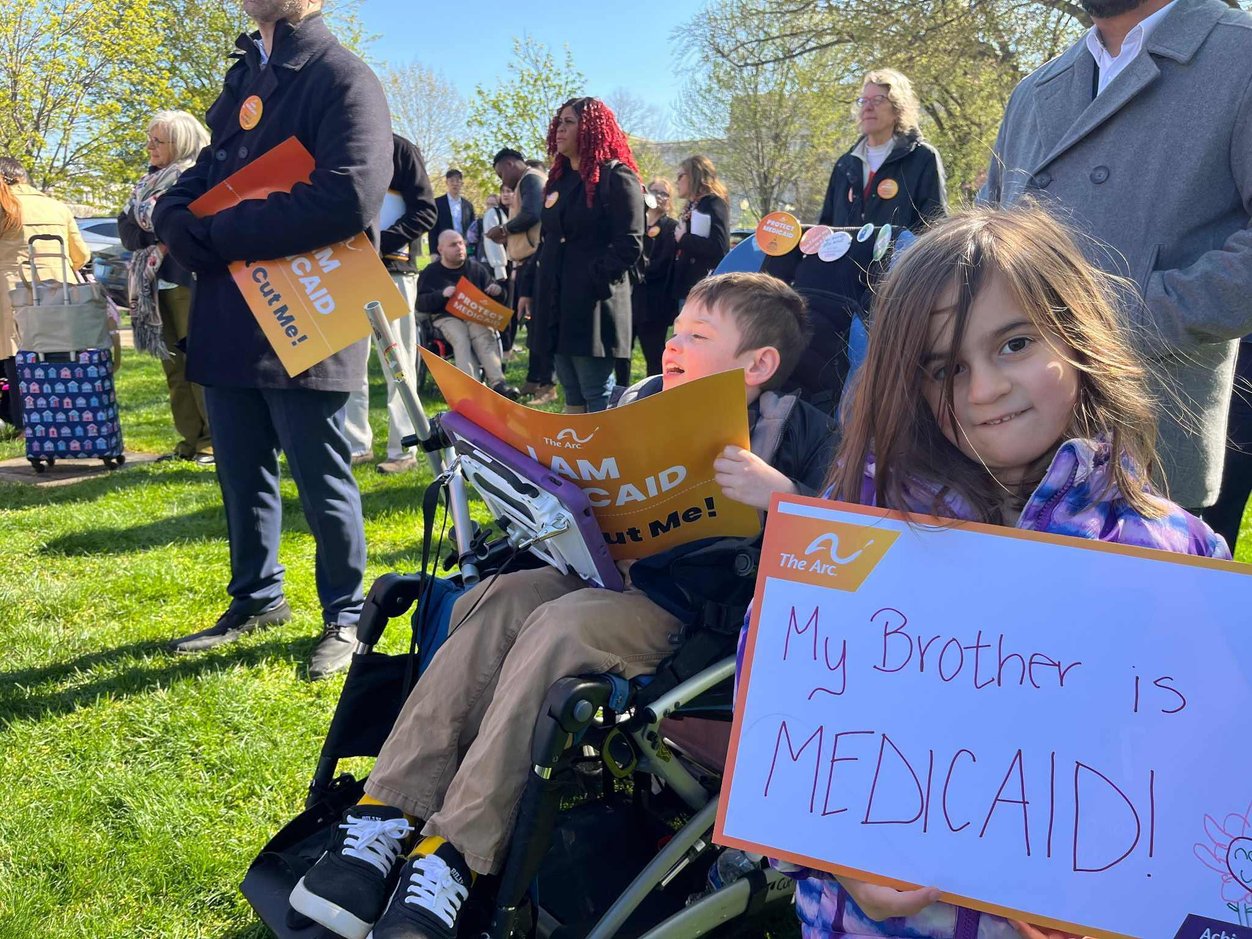on the lawn
Disability advocates rally against Medicaid cuts

Courtesy Jackie Dilworth
"I am Medicaid, don't cut me! I am Medicaid, don't cut me!"
The chants echoed across the grass in front of the Capitol building in Washington yesterday morning as hundreds of disability advocates gathered to protest potential cuts to Medicaid.
It was the second day of rallies from a community desperate to stop the federal government from cutting critical services and programs, including long-term care or home- and community-based services. Cuts could undo the civil rights gains that the disability community has spent decades fighting for, placing many people at risk of returning to subpar institutional care. Republicans have yet to release a firm plan for these cuts, but many disabled folks met with their representatives this week to try and convince legislators to push back against the deeply unpopular plan.
"There are people who want to cut everything in sight, everything that's good for people," said Rep. Danny Davis of Illinois at the rally. "Who would ever think you'd cut Medicaid, the lifeline for individuals who need assistance for health care and for disability care and disability rights?" – O. Rose Broderick
heart health
Stroke deaths and disparities over 20 years
Since the turn of the century, people who die of a stroke are more and more often dying at home as opposed to in medical settings. And that's especially true for Black people and anyone living in rural areas, according to a study published yesterday in PLOS One that looked at CDC data on deaths from ischemic stroke between 1999 and 2020. It's unclear why the shift toward dying at home happened, the researchers wrote — it could be personal preference, or a problem with access.
There were some other interesting trends: People of Asian and Pacific Islander descent had the lowest death rate from stroke in 1999 at 17.5 per 100,000 — but by 2020, that number had nearly doubled. Black and African American people had the highest rate at the start of the study period at about 88 per 100,000. The rate declined sharply for a few years, but by 2020 had risen right back to where it started. White people, meanwhile, saw a gradual slowing of stroke deaths, going from 64 to 57 per 100,000 over the decades.
first opinion
Remember the animals
The wellness industry is a hotbed for medical misinformation and a distrust of science, often glorifying "natural" alternatives. The result is the proliferation of pseudoscience that harms not just humans, but animals, argues scientist Andrea Love in a new First Opinion.
The raw pet food industry claims these diets are "biologically appropriate," despite overwhelming veterinary and epidemiological data saying otherwise. Meanwhile, H5N1 bird flu has spread in the past two years into other species like seals, foxes, cats, cows, and more. Read more from Love on how the wellness industry is killing animals, spreading disease, and could even be fueling the next pandemic.
Since the day she joined the team, STAT's First Opinion editor Torie Bosch has been advocating for more coverage of animal health. "Because I love my cats, but also because recent advances in veterinary medicine means there is a lot of money being spent, and the field could use more scrutiny," she said to me in a DM. "And, of course, animal health has tremendous implications for human health. See: H5N1 bird flu." Email Torie if you've got insightful animal-medicine stories or opinions.


No comments